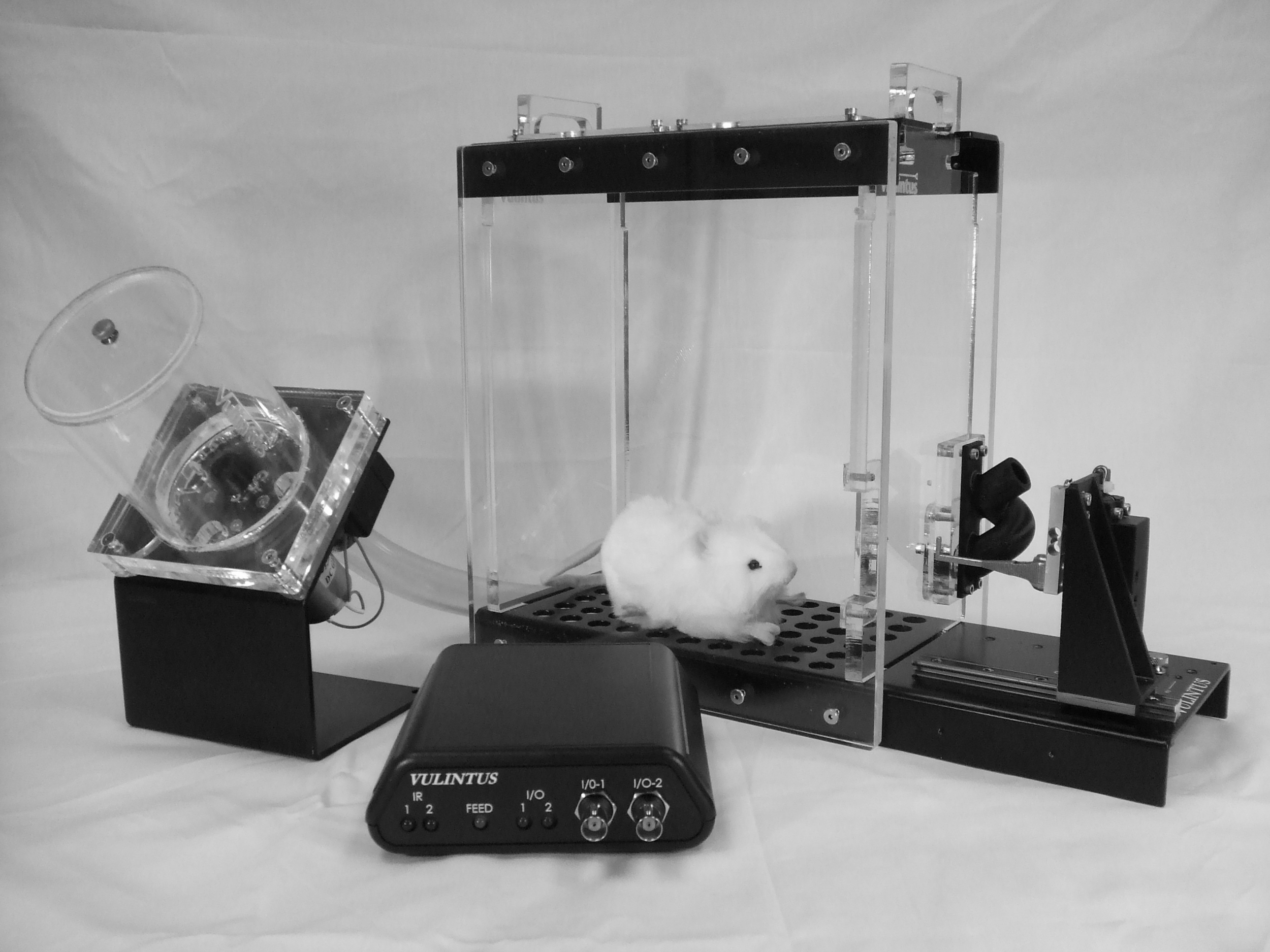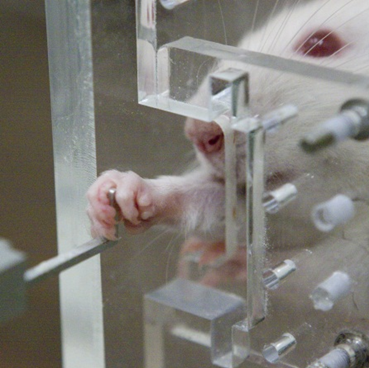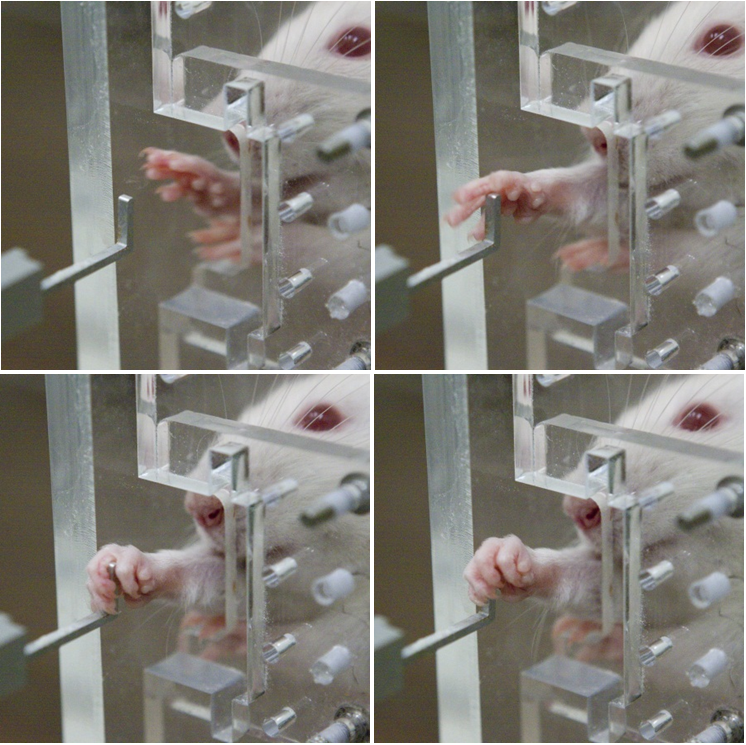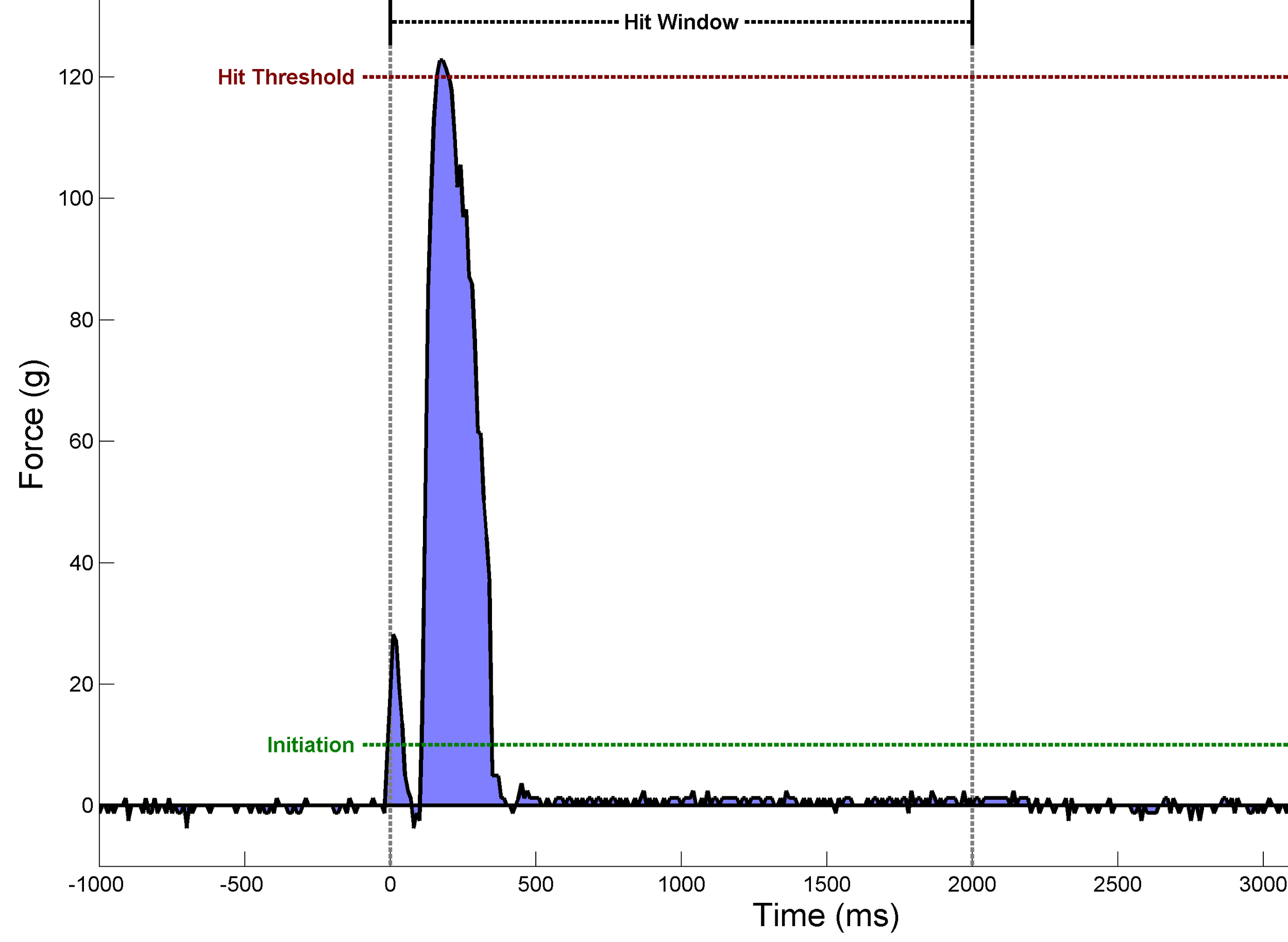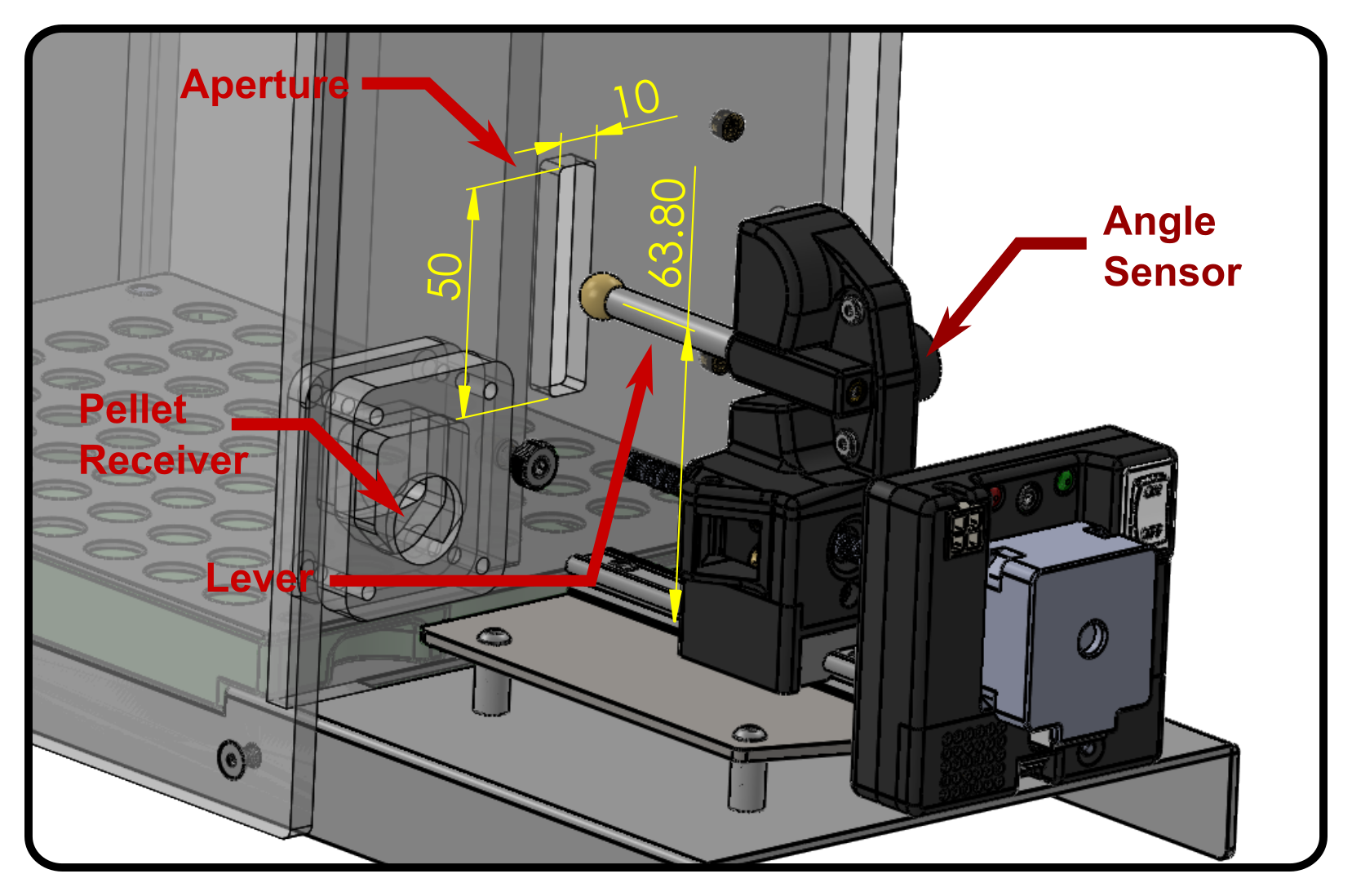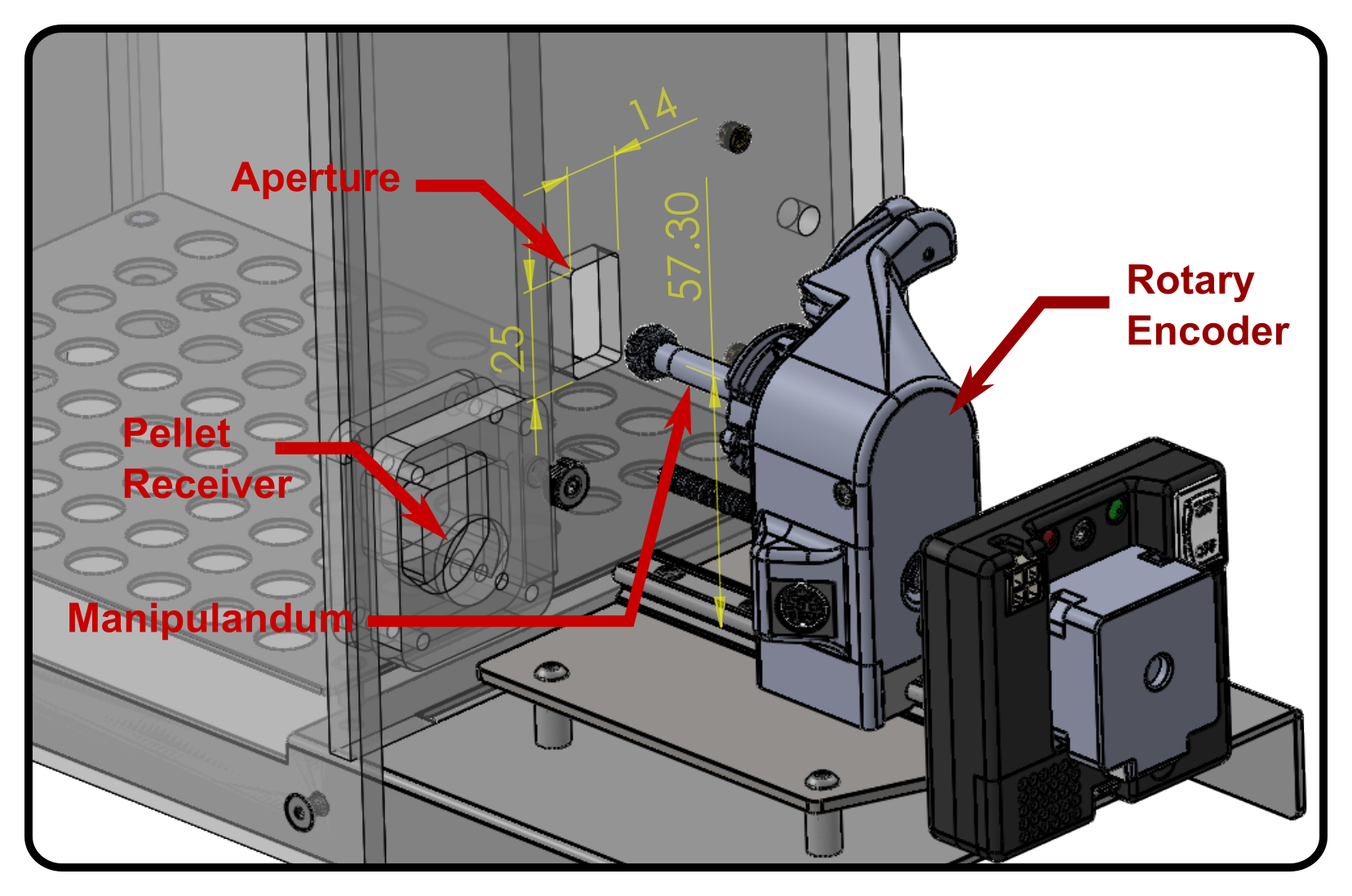MotoTrak: automated, quantitative measures of forelimb function in rodents
Vulintus' MotoTrak is a complete, modular system designed for computer-supervised training and testing of forelimb movements in rodent models. With interchangeable behavior modules, you can isolate forelimb strength, movement speed, pronation/supination, bradykinesia, and more. Software monitors and guides training and testing, and provides quantitative endpoint measures with no time-consuming manual analysis.
Reduce one-on-one time with animals to increase subject throughput.
Statistical power; hundreds of data-rich trials per day unmask subtle significant effects.
Software adaptively increments targets for unsupervised learning.
Continuous recording of motor movements from each trial, including pre-trial activity.
Real-time analysis shows current performance at a glance.
Offline analysis helps you find effects in secondary measures like impulse, timing, and fatigue.
MotoTrak is designed to be user-friendly, plug and play, requiring little technical skills, but MotoTrak is also based around open-source programming so that technical users can customize as desired.
MotoTrak systems are used in labs all over the United States and Europe and have been used to measure significant, lasting motor deficits in rat models of stroke, traumatic brain injury, Parkinson's disease, spinal cord injury, peripheral nerve injury, and motor learning, and in mouse models of stroke.
Publications Using MotoTrak Systems
Look for help setting up and running your MotoTrak system? How-to guides, example protocols, and MATLAB-based analysis tools are all available on our MotoTrak Support Page.
Development of the MotoTrak System was supported by the fast-track Small-Business Innovation Research (SBIR) grant R44NS068344 from the National Institute of Neurological Disorders and Stroke.



